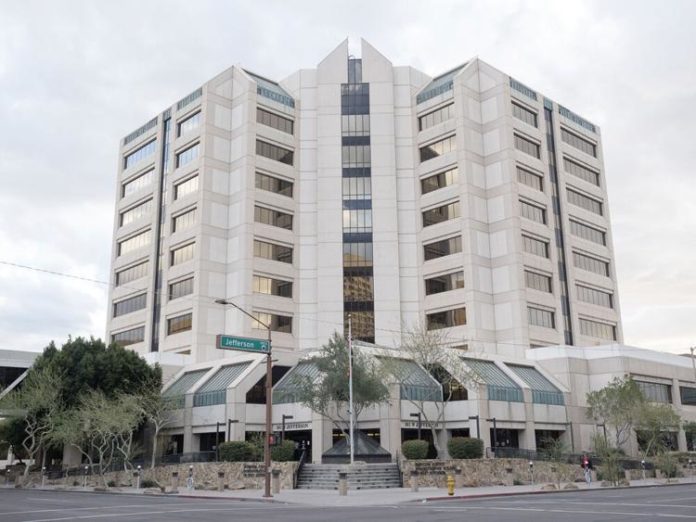
The Maricopa County Board of Supervisors voted against creating a special taxing district to manage water delivery this week.
The Board voted unanimously against the proposed Domestic Water Improvement District (DWID). Doing so keeps other options available, including finding a permanent water supplier accountable to the Arizona Corporation Commission (ACC), according to a press release from the county.
“When I approached the Corporation Commission to inform them about the urgency of the Rio Verde Foothills water issue, they quickly agreed to get involved,” Supervisor Thomas Galvin, who represents the Rio Verde Foothills and the rest of District 2, said in the release. “We already know at least one supplier is interested in working with the ACC to provide standpipe water service to RVF residents.”
Since the Rio Verde Foothills is an unincorporated community, its residents have no guaranteed water service from a city or town. The county is not a water provider. Therefore, people in Rio Verde Foothills have to find other water sources.
These include wells, private utilities, and hauled water, the latter of which often comes from Scottsdale. However, Scottsdale’s drought management plan aims to end water service to those who live outside of the city limits starting in December 2022.
Responding to this rule change from Scottsdale, a group of Rio Verde Foothills residents proposed creating a Domestic Water Improvement District. It would have levied taxes and fees on Rio Verde Foothills residents who signed up for water service.
Attorney Jeff Crockett represented those who supported the proposal, saying they lacked other options.
“The petitioners have been working toward a solution to this problem for a number of years now,” Crockett said during the Board’s August 29 meeting. “That search for a solution didn’t start with the idea that they would seek the formation of a DWID. But when looking at all of the options that were available and including their criteria for a water solution for the problem, the DWID became the clear answer to them.”
In researching the proposal, the county found that of the 4,200 parcels of land in the area, just 550 supported the district, and nearly 40% of those parcels were vacant.
Resident Krista Jackman, who owns a well, spoke in opposition to the proposal, saying it would raise water costs.
“They’re going to monopolize the water in our area, where 2,200 homes exist that always use water,” she said at the August 29 Board meeting. “And they’re going to have to charge us extra because if a DWID forms, there will be no other alternative for us.”
Plus, some community members opposed a new government entity with condemnation authority that could impact private property rights.
“I really respect the work that went into proposing the DWID. I believe supporters of that option want to do what’s right for their community,” Galvin said in the release. “However, I do not believe that option promotes the convenience, necessity, and welfare for the whole community. There are alternatives that benefit everyone.”
Galvin said the community should continue to work together to find a viable solution to this water problem.
Galvin continues to emphasize the idea that the community should work together. “Ultimately, my vote to not approve the DWID creates opportunity for a whole community solution to accessible water,” he said in the release. “Along with assistance from the ACC and interest from a regulated water utility provider, a resilient, reliable, relatively affordable water solution is attainable for the entire RVF community.”
Republished with the permission of The Center Square.













